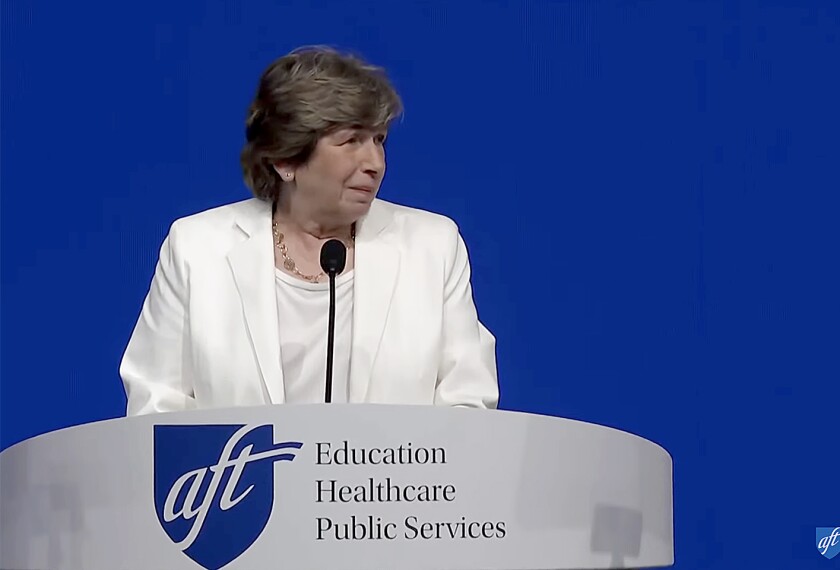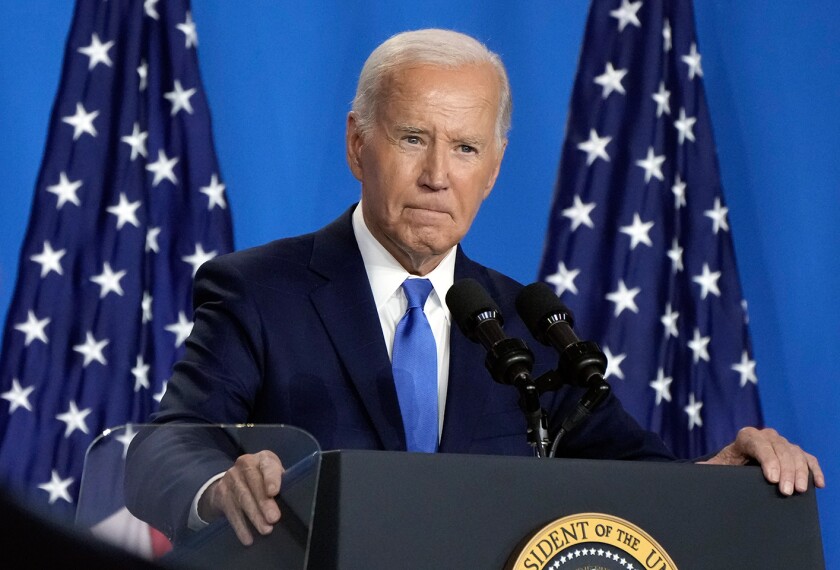The contentious effort in Congress to revamp U.S. immigration policy has intensified interest in how best to promote the instruction and use of English among immigrants.
Advocacy groups on different sides of the issue have been following an amendment to a comprehensive immigration bill passed by the Senate on May 25 that would declare English the “national language” of the United States and require immigrants to learn English as a condition of legal residency.
The amendment, sponsored by Sen. James M. Inhofe, R-Okla., says that “unless otherwise authorized or provided by law,” no one has the right to claim that the U.S. government must provide services in a language other than English.
Experts on immigrant education say it is unclear how a federal law designating English as the national language would affect public schools and the materials they produce in foreign languages for families who speak little or no English.
Raul Gonzalez, the legislative director for the National Council of La Raza, a Washington-based advocacy group for Latinos, worries that such a provision would be more than symbolic, however.
For example, he points to language in the federal No Child Left Behind Act that requires school districts to provide information on their schools to parents in a form and language that are easily understood, though not necessarily in a language other than English.
His concern is that the Inhofe amendment, if it becomes law, might remove the leverage parents and community groups have in citing the NCLB act as grounds for getting information translated into different languages. “If I didn’t get something in a form I understand, under the amendment, I would have no right to any kind of translation,” Mr. Gonzalez contended.
James Crawford, a longtime expert on bilingual education and a co-director of the recently formed Institute for Language and Education Policy, said last week that the implications of such a law “are very unclear.”
He noted that most decisions regarding translations and other services for non-English-speaking students and parents are made locally. “The concern is that the Senate amendment will send a green light to officials who are not eager to provide the services, and they will simply cancel them,” said Mr. Crawford, who also is a former reporter for Education Week.
But Jim J. Boulet Jr., the executive director of the Springfield, Va.-based English First, which wants English to be made the official U.S. language, supports the national-language amendment.
Right now, Mr. Boulet said, the federal government’s default policy is that if someone demands that a government document be provided, for example, in Urdu—a language commonly spoken by Muslims from South Asia—officials feel they should provide it.
The issue is further clouded by the Senate’s subsequent adoption of an amendment, offered by Sen. Ken Salazar, D-Colo., that calls English the nation’s “common language.”
English Tests
Michele Waslin, the director of immigration-policy research for the National Council of La Raza, said her organization opposes changes to a previous Senate bill that were part of the Inhofe amendment.
The earlier immigration bill, approved by the Senate Judiciary Committee in March, would have required immigrants to pass an English test or be enrolled in an English class to become legal residents. Sen. Inhofe’s amendment, Ms. Waslin noted, struck out the wording that said being enrolled in an English class would be sufficient to qualify for residency, while leaving in the language requiring immigrants to pass an English test to become legal residents.
The same test is now required as part of the process for becoming a U.S. citizen.
Ms. Waslin said that none of the immigration proposals under consideration this year would provide funding for English classes.
“Millions of people will have to speak English,” Ms. Waslin said. “But for those who are struggling to learn English, we know there are huge backlogs to get into classes. How are people going to pass the test if they can’t get classes?”
A conference committee will attempt to reconcile the Senate version of immigration legislation and a much more narrowly focused bill that the House approved in December.




